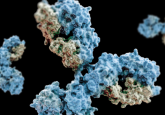Can AI predict the development of autoimmune diseases?

A new study details how an AI algorithm has been trained to identify genes associated with autoimmune diseases, hopefully allowing for earlier intervention.
Genetics play an important role in the development of autoimmune diseases, with DNA variations influencing gene expression, often with disastrous consequences. Now, researchers at Penn State College of Medicine (PA, USA) have trained an algorithm that can predict autoimmune disease risk early by analyzing genetic data. Early prediction and detection will lead to earlier intervention and, potentially, the development of novel therapeutics.
Autoimmune diseases – where the immune system mistakenly attacks the body’s healthy cells and tissues – are diseases born from mutation; however, it isn’t clear exactly which genetic mutations leave individuals susceptible to developing such diseases. “We all carry some DNA mutations, and we need to figure out how any one of these mutations may influence gene expression linked to disease so we can predict disease risk early. This is especially important for autoimmune disease,” commented Dajiang Liu, co-senior author of the study.
 The second X: why women are more likely to get autoimmune disorders
The second X: why women are more likely to get autoimmune disorders
Xist, expressed only in cells with two X chromosomes, has been exposed as a key cause of the disproportionate representation of women in the incidence of autoimmune disorders.
In this study, the team presented their newly developed AI method, called EXPRESSO (EXpression PREdiction with Summary Statistics Only), which can analyze data from single-cell expression quantitative trait loci, a type of data that links genetic variants to the genes they regulate, while also integrating 3D genomic data and epigenetics. They applied their algorithm to genome-wide association studies’ datasets for 14 different autoimmune diseases, testing whether EXPRESSO could identify additional risk genes for autoimmune disorders.
“With this new method, we were able to identify many more risk genes for autoimmune disease that actually have cell-type specific effects, meaning that they only have effects in a particular cell type and not others,” reported Bibo Jiang, co-senior author of the study. Using this information, the researchers took one step further to identify therapeutic compounds that might serve as good long-term treatment options, which is a necessary step as existing treatments can have negative side effects.
They found certain compounds that have already received FDA approval can reverse gene expression in autoimmune disease-associated cell types. Next, the team plans to validate their findings and EXPRESSO in the lab and, eventually, in clinical trials.





